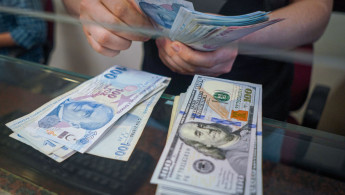Turkey restores election funding for pro-Kurdish party
Turkey's top court on Thursday restored the funding of a pro-Kurdish party that has emerged as a kingmaker in crucial May 14 parliamentary and presidential polls.
The constitutional court's decision reverses a freeze imposed in January at the request of government prosecutors, who are trying to dissolve the Peoples' Democratic Party (HDP).
President Recep Tayyip Erdogan accuses the HDP -- parliament's third-largest party -- of being the political wing of Kurdish militants who have been fighting government forces since 1984.
The party denies the charges and says it is being singled out for its fierce criticism of the government's social and economic policies.
The court froze the funding as an interim measure before a final decision on whether to shut down the party and bar hundreds of its members from engaging in politics for five years.
Its lawyers are due to submit a defence of their case before the constitutional court on April 11.
Turkish media reports say the party was due to receive 539 million liras ($28 million) in treasury support this year.
The unexpected court victory for the HDP comes with Erdogan trying to expand his appeal in the face of the most difficult election test of his two-decade rule.
Erdogan's splintered political opponents ended months of heated debates and agreed to back the candidacy of secular opposition leader Kemal Kilicdaroglu.
Opinion polls in Turkey have a poor track record, but some show Erdogan trailing his rival by more than 10 percentage points.
The HDP was excluded from the anti-Erdogan alliance because some of the other opposition leaders' more nationalist views.
"Erdogan now pitching for Kurdish votes?" emerging markets analyst Timothy Ash of BlueBay Asset Management asked in a note to clients.





 Follow the Middle East's top stories in English at The New Arab on Google News
Follow the Middle East's top stories in English at The New Arab on Google News


